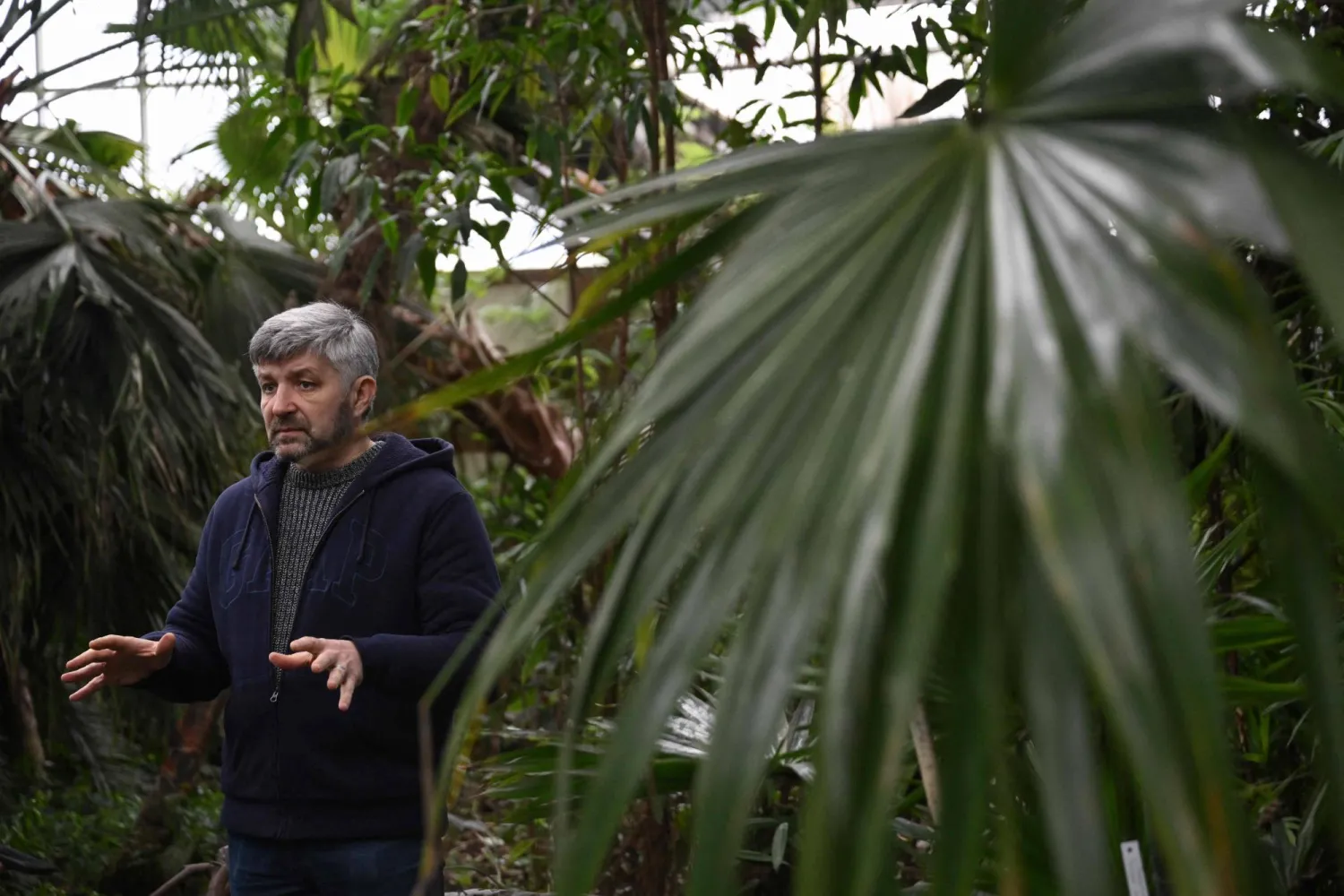Maryna Skromnaya was ready to face shelling and explosions to get her hair done at a salon in Pokrovsk, the eastern Ukrainian city under intense Russian attack.
"I need to stay beautiful rather than run around looking like Baba Yaga!" she said, referring to the mythical forest witch who feasts on children.
Her blue eyes now framed by a fresh bob cut, the frail 57-year-old stood up from the hairdresser's chair and flashed a peace sign in a brightly lit mirror.
The salon's roaring trade exemplifies how thousands of Ukrainians living in partially deserted and shelled-out frontline towns are trying to cling to a sense of how things used to be, AFP reported.
Its pristine white-walled salon is a rare pocket of normal daily life in Pokrovsk, even as Moscow's forces less than 10 kilometers (six miles) away, are closing in.
The mining city was home to 60,000 people before Russia invaded.
Its population has plunged from around 48,000 to 16,000 over the last month, according to the authorities, who are urging all residents to leave.
Skromnaya was preparing to heed that advice, but wanted to savor a few final moments at home.
That included a haircut at her favorite spot, even if it meant a 40-minute walk to get there.
"Public transport? You may as well lie down on the floor waiting for it. It's gone," said Skromnaya.
'Always something exploding'
"You can always start walking, turn your music on, go feel beautiful," she said.
But venturing outside in Pokrovsk these days is perilous.
"There were bangs here, bangs there, there's always something exploding," Skromnaya said, waving her arms left and right.
Inside the salon, the buzz of hair clippers and blow dryers barely covered the thuds from the front line, some seven kilometers away.
Facing increased Russian bombardments, the authorities have ordered residents to stay inside their homes for 20 hours a day.
So would-be customers were constantly rushing in, pleading for a slot in the narrow window between 11:00 am and 3:00 pm -- outside the strict curfew.
"Look at me, I look like a bum!" one man joked, lifting his cap to reveal a slightly uneven cut.
Salon worker Natalya Gaydash shook her head apologetically. He didn't have an appointment.
The team was doing its best to squeeze in as many clients as possible.
"The war is not a reason to just lay down and die with your hair undone, your nails unclipped and dirty," said 32-year-old Gaydash.
The salon will stay open as long as the Russians are far enough away, said owner Ludmila Kovaleva, who opened the place five years ago.
"How can you stop going to work if people are waiting for you?"
'Empty soul'
"People come for a slice of positivity," Gaydash said.
"Some come to share their problems ... others share a bit of joy with us."
Feeling fresh and handsome after his trim, 54-year-old Yury Chaplygin beamed, revealing a few golden teeth.
"There's a good atmosphere, you can drink coffee as you wait for your turn," the locomotive driver said in a deep voice.
The few remaining workers from a nearby market, now mostly closed, hustled round the salon's coffee machine, sharing gossip for a few minutes.
Another beauty salon just round the corner, owned by Kovaleva's sister Iryna Martynova, recently shut its doors.
"Clients used to get served by my sister, then go see me, then go back to my sister just like on a merry-go-round," Martynova said wistfully.
But people stopped trickling in after the evacuations stepped up in August.
Martynova's salon is now empty, save for a few shelves covered in blue plastic wrap.
The door was cracked in a recent shelling attack.
"This is not normal, and with every day that passes it's getting even more abnormal. I've already made up my mind, I'm leaving," Martynova said, tearing up at the thought of having to start all over again.
She was taking some comfort that her former clients, now spread all across Ukraine, have already started calling her to see where she'll go and if they can make a booking.
"This is my life's work, my favorite job. I'm left without it. My favorite clients, I've known them all for years. Now my soul is empty."









